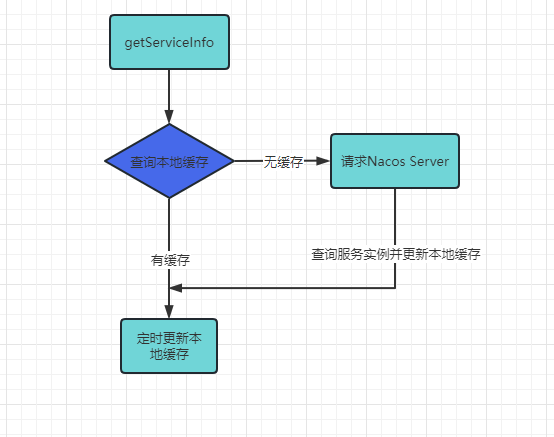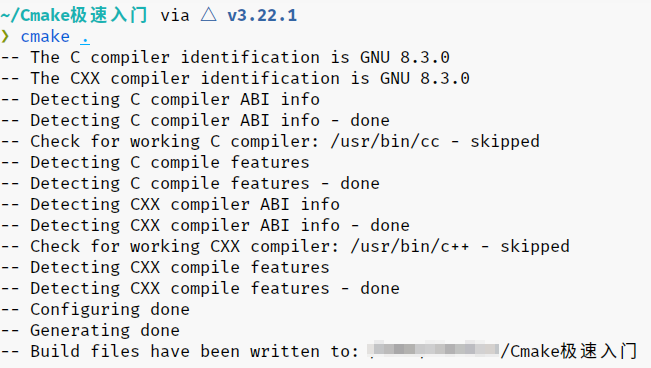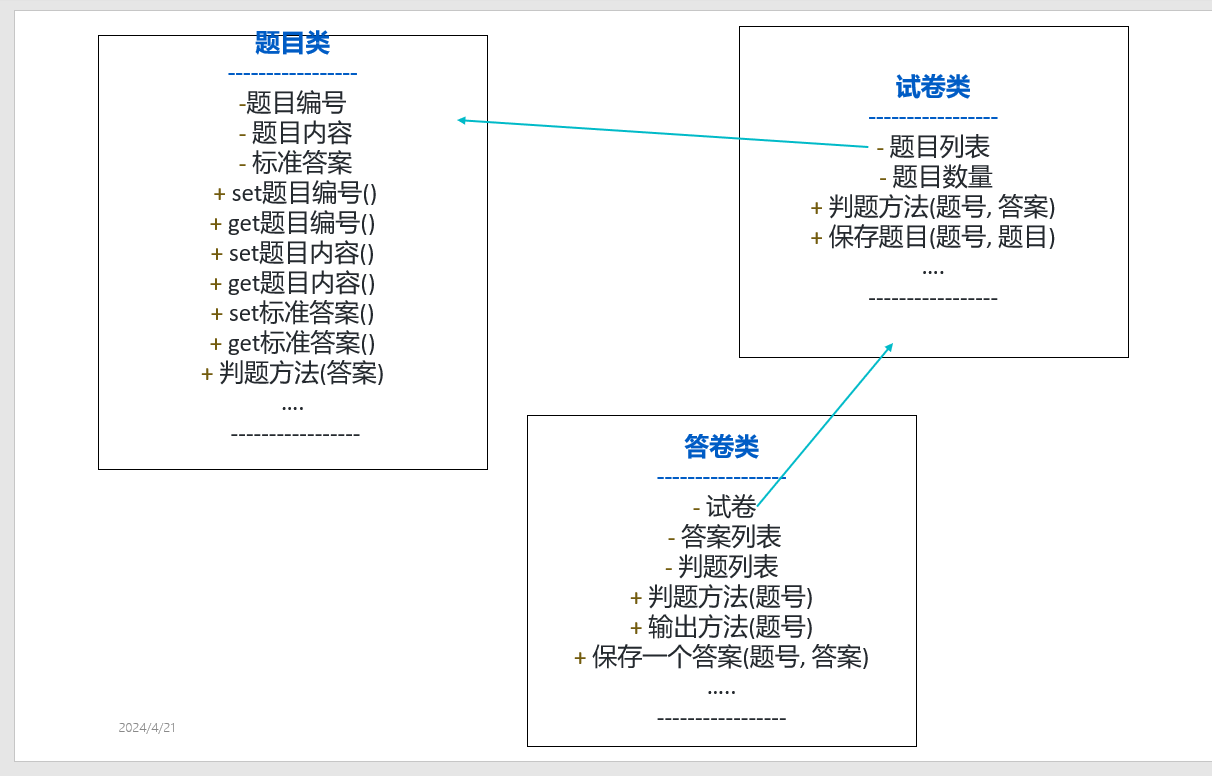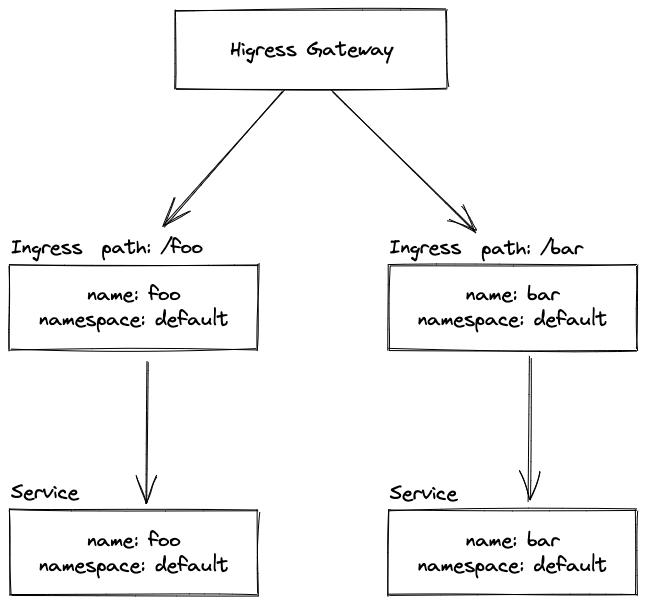Bootcamp
Topics related to measure theory.
略去,详见测度论专栏中的文章
Expectations
令 \(X\) 为 \((\Omega, \mathcal{F}, P)\) 上的随机变量,\(\mathbb{E}[X]\) 为其期望。一些期望的特殊表示如下:
-
\(X: \Omega \rightarrow \mathbb{R}\) 为简单函数,即,\(X\) 在有限集 \(\left\{x_{1},\ldots, x_{n} \right\}\) 中取值,则:
\[\mathbb{E}[X] := \sum\limits^{n}_{i=1} x_{i} P(X = x_{i})
\] -
\(X \geq 0\) almost surely,则:
\[\mathbb{E}[X] := \sup \left\{ \mathbb{E}[Y]: ~ Y \mbox{ is simple, } ~ 0 \leq Y \leq X \mbox{ almost surely. } \right\}
\]注意,非负随机变量的期望可能为 \(\infty\)。
-
\(\mathbb{E}[X^{+}]\) 或 \(\mathbb{E}[X^{-}]\) 其中之一是有限的,则:
\[\mathbb{E}[X] := \mathbb{E}[X^{+}] - \mathbb{E}[X^{-}]
\] -
\(X\) 为一个向量,且 \(\mathbb{E}[|X|] < \infty\),则:
\[\mathbb{E}\Big[\left(X_{1}, \ldots, X_{d}\right)\Big] := \Big( \mathbb{E}[X_{1}], \ldots, \mathbb{E}[X_{d}] \Big)
\]
Jensen's Inequality (琴生不等式)
令 \(X\) 为一个随机变量,\(g: \mathbb{R} \rightarrow \mathbb{R}\) 为一个凸函数。那么当 \(X\) 的期望存在时:
\]
若 \(g\) 为严格凸函数,则以上不等式可随之写为严格大于的形式(除非 \(X\) 取常数值)。
-
注(Convex function):
函数 \(f: X \rightarrow \mathbb{R}\) 称作一个凸函数,如果:
\[\forall ~ t \in [0, ~ 1]: ~ \forall ~ x_{1}, x_{2} \in X: ~ f\Big( tx_{1} + (1-t) x_{2} \Big) \leq t\cdot f(t x_{1}) + (1-t) \cdot f(x_{2})
\]
Self-Financing Condition
A self-financing strategy is defined as a consumption stream \((c_{t})_{t\geq 0}\) which follows:
\]
Numeraire (计价单位)
-
\((\eta_t)_{t\geq 0}\) 为 previsible process.
-
\(\eta_{t} \cdot P_{t} > 0\) almost surely, i.e., \(P(\eta_t \cdot P_{t} > 0) = 1\).
-
\((\eta_{t})_{t\geq 0}\) 满足 self-financing condition, i.e.,
\[(\eta_{t} - \eta_{t+1}) \cdot P_{t} = 0 \qquad \quad \mbox{for } \forall t\geq 0
\]这实际上意味着:
\[\eta_{t} \cdot P_{t} = \eta_{t+1} \cdot P_{t} \qquad \qquad \text{for } ~ \forall t \geq 0
\]注意,以上式子中两侧的 \(P_{t}\) 不能随手约去,因为等式两边是两个向量的内积运算。
Numeraire Asset
-
A numeraire asset is an asset with strictly positive price.
-
若 asset \(i\) 为一个 numeraire asset,那么对于 \(\forall t \geq 0\),定义 constant portfolio \(\eta\):
\[\eta_{t}^{j} = \begin{cases}
1 \qquad \text{if } j = i\\
0 \qquad \text{otherwise}
\end{cases}
\]为一个 numeraire portfolio。
Investment-Consumption Strategy
c_{0} & = x - H_{1} \cdot P_{0}\\
c_{t} & = (H_{t} - H_{t+1}) \cdot P_{t} \qquad \qquad \mbox{for } t \geq 1
\end{align*}
\]
其中 \(x\) 为初始财富。
Terminal Consumption Strategy
c_{0} & = -H_{1} \cdot P_{0} = 0\\
c_{t} & = (H_{t} - H_{t+1}) \cdot P_{t} = 0 \qquad \qquad \mbox{for } 1 \leq t \leq T-1\\
c_{T} & = H_{T} \cdot P_{T} \geq 0 \\
\mbox{and} \qquad \qquad \\
P( &c_{T} > 0) > 0
\end{align*}
\]
其中 \(H\) 为 previsible process,non-random \(T > 0\) 使得以上 holds almost surely。
Pure Investment Strategy
对于 \(\forall t \geq 0\),每一期持仓 \(H_{t}\),但将每一期的 consumption \(c_{t}\) 不用于消费,而是用于投资 numeraire portfolio \(\eta_{t}\)。
Theorem. 局部鞅 \(\rightarrow\) 鞅的充分条件 (local martingales to true martingales: sufficient condition)
令 \(X\) 为一个离散或连续的 local martingale,令过程 \((Y_{t})_{t\geq 0}\) 满足:
\]
若 \(\mathbb{E}[Y_{t}] \leq \infty, ~ \mbox{ for } ~ \forall ~ t \geq 0\),那么 \(X\) 为一个 true martingale。
证明:
由于 \((X_{t})_{t\leq 0}\) 为一个 local martingale,根据定义存在一个 stopping time series (localizing sequence):\((\tau_{N})_{N\geq0}\),满足 \(\lim \limits_{N \rightarrow \infty} \tau_{N} = \infty\),使得对于 \(\forall ~ N \geq 0\),\(\Big(X^{\tau_{N}}_{t}\Big)_{t \geq 0} = \Big(X_{t \land \tau_{N}}\Big)_{t\geq 0}\) 为 true martingale。
首先证明 \((X_{t})_{t\geq 0}\) 可积。对于任意 \(t \geq 0\),取任意 \(T \geq t\),根据条件:\(|X_{t}| \leq Y_{T}\) almost surely。又因为:\(\forall ~ T \geq 0: ~ \mathbb{E}[Y_{T}] < \infty\),那么:
\]
因此 \((X_{t})_{t\geq 0}\) integrable。
将 \(X_{t\land\tau_{N}}\) 视作一个下标为 \(N\) 的序列,即:
\]
注意到 \(X_{t\land \tau_{N}} = X_{\min(t, \tau_{N})} \longrightarrow X_{t}\) almost surely with \(N \longrightarrow \infty\),即:
\]
这是因为 \(\lim \limits_{N \rightarrow \infty} \tau_{N} = \infty\),\(t \land \tau_{N} = \min(t, \tau_{N})\) 自然随 \(N\) 增大而收敛于 \(t\)。
所以对于 \(\forall ~ 0 \leq s \leq t\):
\mathbb{E}[X_{t} ~ | ~ \mathcal{F}_{s}] & = \mathbb{E}\Big[\lim\limits_{N\rightarrow \infty}X_{t\land \tau_{N}} ~ | ~ \mathcal{F}_{s}\Big]\\
& = \lim\limits_{N \rightarrow \infty} \mathbb{E}\Big[ X_{t\land\tau_{N}} ~ | ~ \mathcal{F}_{s}\Big] \quad (\mbox{Dominated Convergence Theorem})\\
& = \lim\limits_{N \rightarrow \infty} X_{s \land \tau_{N}} \quad (\mathbf{*})\\
& = X_{s}
\end{align*}
\]
因此:local martingale \((X_{t})_{t\geq 0}\) 在给定的条件下也为一个 true martingale。
-
注意:
以上带星号的那一步推导中,鞅 \(\Big(X_{t\land\tau_{N}}\Big)_{t\geq 0}\) 的下标依然是 \(t\),尽管现在复合为 \(t\land \tau_{N}\)。因此在这一步中我们只需将 \(t\) 替换为 \(s\) 即可。
Corollary.
假设 \(X\) 一个 离散 时间 local martingale,使对于 \(\forall ~ t \geq 0: ~ \mathbb{E}[|X_{t}|] < \infty\),那么 \(X\) 是一个 true martingale。
证明:
令 \(Y_{t} = |X_{0}| + |X_{1}| + \cdots + |X_{t}|\)。Trivially:
\]
并且由于:\(\forall ~ t \geq 0: ~ \mathbb{E}[|X_{t}|] < \infty\),那么:
\mathbb{E}[Y_{t}] & = \mathbb{E}\Big[ \left|X_{0}\right| + \left|X_{1}\right| + \cdots + \left|X_{t}\right| \Big]\\
& = \sum\limits^{t}_{s=0}\mathbb{E}\big[ \left| X_{s} \right| \big] < \infty
\end{align*}
\]
所以 \((Y_{t})_{t\geq 0}\) 可积,并且此时 \((X_{t})_{t \leq 0}\) 和 \((Y_{t})_{t\geq 0}\) 恰满足上述 Sufficient Condition,因此 \((X_{t})_{t\geq 0}\) 为一个 true martingale。
Supermartingale and Submartingale (上鞅与下鞅)
上鞅(Supermartingale)
相关于 filtration \(\mathcal{\left\{ F_{t} \right\}}_{t\geq 0}\) 的一个 supermartingale(上鞅)是一个 adapted stochastic process \((U_{t})_{t\geq 0}\),满足以下性质:
-
(Integrability)
\[\forall ~ t \geq 0: ~ \mathbb{E}\big[\left| U_{t} \right|\big] < \infty
\] -
(Decrease in average)
\[\forall ~ 0 \leq s \leq t: ~ \mathbb{E}\big[U_{t} ~ | ~ \mathcal{F}_{s}\big] \leq U_{s}
\]
下鞅(Submartingale)
相关于 filtration \(\mathcal{\left\{ F_{t} \right\}}_{t\geq 0}\) 的一个 submartingale(下鞅)是一个 adapted stochastic process \((V_{t})_{t\geq 0}\),满足以下性质:
-
(Integrability)
\[\forall ~ t \geq 0: ~ \mathbb{E}\big[ | V_{t} | \big] < \infty
\] -
(Increase in average)
\[\forall ~ 0 \leq s \leq t: ~ \mathbb{E}\big[V_{t} ~ | ~ \mathcal{F}_{s}\big] \geq V_{s}
\]
鞅、上鞅、下鞅
A martingale is a stochastic process that is both a supermartingale and a submartingale.
Theorem.
假设 \(X\) 是一个连续或离散时间上的 local martingale。如果 \(X_{t} \geq 0\) 对于 \(\forall ~ t \geq 0\) 都成立,那么 \(X\) 是一个 supermartingale(上鞅)。
证明:
令 \((\tau_{N})_{N\geq 0}\) 为相关于 local martingale \((X_{t})_{t\geq 0}\) 的 localizing sequence,即:
\]
首先证明 \((X_{t})_{t \geq 0 }\) 可积。由 Fatou's Lemma:
\mathbb{E}\big[|X_{t}|\big] & = \mathbb{E}[X_{t}] \\
& = \mathbb{E}\Big[\lim\limits_{N \rightarrow \infty} X_{t \land \tau_{N}}\Big] \\
& = \mathbb{E}\Big[\liminf\limits_{N \rightarrow \infty} X_{t \land \tau_{N}}\Big] \\
& \leq \liminf\limits_{N \rightarrow \infty} \mathbb{E}\Big[X_{t\land \tau_{N}}\Big] \\
& = \liminf\limits_{N \rightarrow \infty} \mathbb{E}\Big[X_{t\land \tau_{N}} ~ \Big| ~ \mathcal{F}_{0} \Big] \\
& = X_{0} < \infty
\end{align*}
\]
在条件期望上运用 Fatou's Lemma,对于 \(\forall ~ 0 \leq s \leq t:\)
\mathbb{E}\big[X_{t} ~ | ~ \mathcal{F}_{s}\big] & = \mathbb{E}\Big[ \lim\limits_{N \rightarrow \infty} X_{t\land \tau_{N}} ~ \Big| ~ \mathcal{F}_{s} \Big] \\
& = \mathbb{E}\Big[ \liminf\limits_{N \rightarrow \infty} X_{t\land \tau_{N}} ~ \Big| ~ \mathcal{F}_{s} \Big] \\
& \leq \liminf_{N \rightarrow \infty} \mathbb{E}\Big[ X_{t\land \tau_{N}} ~ \Big| ~ \mathcal{F}_{s} \Big] \\
& = \liminf_{N \rightarrow \infty} X_{s \land \tau_{N}} \\
& = X_{s}
\end{align*}
\]
因此 \((X_{t})_{t\geq 0}\) 为一个 supermartingale(上鞅)。
Corollary.
如果 \((X_{t})_{t\geq 0}\) 是一个离散时间 local martingale,且对于任意 $ t \geq 0$,有 \(X_{t} \geq 0\) almost surely,那么 \((X_{t})_{t\geq 0}\) 是一个 true martingale。
证明:
通过上述 Theorem,我们有:
\]
由于 \(X\) 是可积的,通过上一条 Corollary 可以得出 \((X_{t})_{t\geq 0}\) 是一个 martingale 的结论。
Theorem.
假设:
\]
其中,\(K\) 是一个 previsible process,\(M\) 是一个 local martingale,\(X_{0}\) 是一个常数。
如果对于某些非随机的 \(T > 0\),有:\(X_{T} \geq 0\) almost surely,那么 \((X_{t})_{0\leq t \leq T}\) 是一个 true martingale。
证明:
略。(太长了,以后有机会补上。)
随机贴现因子(Stochastic Discount Factor / Pricing Kernel / State Price Density)
在一个没有股息的市场中,在时刻 \(s\) 和 \(t\) 间(\(0 \leq s < t\))的随机贴现因子是一个 adapted positive \(\mathcal{F}_{t}-\) measurable random variable \(\rho_{s,t}\), 使得:
\]
-
令 \(Y\) 为一个 martingale deflator(i.e. \(\forall 0 \leq s < t: ~ \mathbb{E}[Y_{t}P_{t} ~ | ~ \mathcal{F}_{s}] = Y_{s}P_{s}\)),令 \(\rho_{s,t} = \frac{Y_{t}}{Y_{s}}\),若 \(\rho_{s,t}P_{t}\) 可积,那么 \(\rho_{s,t}\) 为时间 \(s\) 与 \(t\) 间的 pricing kernel。
-
证明:
对于 positivity,由于 \(Y\) 为 martingale deflator,则 \(\forall t \geq 0: ~ Y_{t} > 0\),所以 \(\rho_{s,t} = \frac{Y_{t}}{Y_{s}} > 0\),并且:
\[\begin{align*}
\mathbb{E} \big[ \rho_{s,t} P_{t} ~ | ~ \mathcal{F}_{s} \big] & = \mathbb{E} \Big[ \frac{Y_{t}}{Y_{s}} P_{t} ~ | ~ \mathcal{F}_{s} \Big] \\
& = \frac{1}{Y_{s}} \mathbb{E} \big[ Y_{t}P_{t} ~ | ~ \mathcal{F}_{s} \big] \\
& = \frac{1}{Y_{s}} \cdot Y_{s} P_{s} \\
& = P_{s}
\end{align*}
\]因此 \(\rho_{s,t}\) 为一个 pricing kernel。
-
-
相反地,对于 \(s\geq 0\),假设 \(\rho_{s, s+1}\) 为 时间 \(s\) 与 \(s+1\) 间的 pricing kernel,令 \(Y_{t} = \rho_{0,1} \rho_{1,2} \ldots \rho_{t-1, t}\),且 \(YP\) 可积,那么 \(Y\) 为一个 martingale deflator。
-
证明:
对于 \(\forall t \geq 0\),由于 pricing kernel 为正随机变量,则 \(Y_{t} = \rho_{0,1} \rho_{1,2} \ldots \rho_{t-1, t} > 0\),并且:
\[\begin{align*}
\mathbb{E} \big[Y_{t+1}P_{t+1} ~ \big| ~ \mathcal{F}_{t} \big] & = \mathbb{E} \big[\rho_{0,1} \rho_{1,2} \ldots \rho_{t-1, t} \rho_{t, t+1} \cdot P_{t+1} ~ \big| ~ \mathcal{F}_{t} \big] \\
& = \rho_{0,1} \rho_{1,2} \ldots \rho_{t-1, t} \cdot \mathbb{E} \big[\rho_{t, t+1} \cdot P_{t+1} ~ \big| ~ \mathcal{F}_{t} \big] \qquad \text{(adaptness)}\\
& = Y_{t} \cdot P_{t} \qquad \text{(by definition)}
\end{align*}
\]因此,\((Y_{t})_{t\geq 0}\) 为一个 martingale deflator。
-
Proposition.
考虑存在一个 numeraire \(\eta\) 的市场,且令:\(N_{t} = \eta_{t} \cdot P_{t} \quad \forall t \geq 0\)。令 \(H\) 为一个 investment-consumption strategy,即,\(H\) 的 consumption stream 定义为:
c_{0} & = x - H_{1} \cdot P_{0}\\
c_{t} & = (H_{t} - H_{t+1}) \cdot P_{t}
\end{align*}
\]
其中 \(x\) 为初始财富。令:
\]
那么,\(K\) 为一个 pure-investment strategy from the same initial wealth \(x\)。
特殊地,当且仅当 \(K\) 为一个 terminal-consumption arbitrage 时,\(H\) 为一个 arbitrage。
证明:
(K_{t} - K_{t+1}) \cdot P_{t} & = \Big( H_{t} + \eta_{t}\sum\limits_{s=0}^{t-1}\frac{c_{s}}{N_{s}} - H_{t+1} - \eta_{t+1}\sum\limits_{s=0}^{t}\frac{c_{s}}{N_{s}} \Big) \cdot P_{t} \\
& = (H_{t} - H_{t+1}) \cdot P_{t} + \Big( \eta_{t}\sum\limits_{s=0}^{t-1}\frac{c_{s}}{N_{s}} - \eta_{t+1}\sum\limits_{s=0}^{t}\frac{c_{s}}{N_{s}} \Big) \cdot P_{t} \\
& = (H_{t} - H_{t+1}) \cdot P_{t} + \Big( \eta_{t}\sum\limits_{s=0}^{t}\frac{c_{s}}{N_{s}} - \eta_{t+1}\sum\limits_{s=0}^{t}\frac{c_{s}}{N_{s}} - \eta_{t} \frac{c_{t}}{N_{t}} \Big) \cdot P_{t} \\
& = (H_{t} - H_{t+1}) \cdot P_{t} + \Big( \big( \eta_{t} - \eta_{t+1} \big) \sum\limits_{s=0}^{t} \frac{c_{s}}{N_{s}} - \eta_{t} \frac{c_{t}}{N_{t}} \Big) \cdot P_{t} \\
& = (H_{t} - H_{t+1}) \cdot P_{t} - \eta_{t} \cdot P_{t} \frac{c_{t}}{N_{t}} + \big( \eta_{t} - \eta_{t+1} \big) \cdot P_{t} \sum\limits_{s=0}^{t}\frac{c_{s}}{N_{s}} \\
& = (H_{t} - H_{t+1}) \cdot P_{t} - \eta_{t} \cdot P_{t}\frac{c_{t}}{N_{t}} \qquad \text{(Investment-consumption strategy)} \\
& = c_{t} \cdot P_{t} - N_{t} \cdot \frac{c_{t}}{N_{t}} \qquad \text{(By definition)} \\
& = 0
\end{align*}
\]
因此,对于 \(\forall t \geq 0\),有:
\]
由假设:\((\eta_{t})_{t\geq 0}\) 为 pure-investment strategy,则 \((K_{t})_{t\geq 0}\) 亦为 pure-investment strategy。
假设对于 non-random \(T\),有:\(c_{T} = H_{T}\cdot P_{T}\),那么:
K_{T} \cdot P_{T} & = \Big( H_{T} + \eta_{T}\sum\limits_{s=0}^{T-1}\frac{c_{s}}{N_{s}} \Big) \cdot P_{T} \\
& = H_{T} \cdot P_{T} + \eta_{T} \cdot P_{T} \sum\limits_{s=0}^{T-1}\frac{c_{s}}{N_{s}} \\
& = c_{T} + N_{T} \sum\limits_{s=0}^{T-1}\frac{c_{s}}{N_{s}} \\
& = N_{T} \frac{c_{T}}{N_{T}} + N_{T} \sum\limits_{s=0}^{T-1}\frac{c_{s}}{N_{s}} \\
& = N_{T} \sum\limits_{s=0}^{T}\frac{c_{s}}{N_{s}} \\
\end{align*}
\]
\]
则:当且仅当 某些 \(c_{t} ~ (0 \leq t \leq T)\) 取值为 strictly positive 时, 等式左侧 \(K_{T} \cdot P_{T}\) 为 strictly positive。
Lemma. (Bayes formula; from homework 5.)
令 \(\mathbb{P}\) 和 \(\mathbb{Q}\) 为定义在 \((\Omega, ~ \mathcal{F})\) 上的 equivalent probability measures,令 Radon - Nikodym derivative: \(Z = \frac{d\mathbb{Q}}{d\mathbb{P}}\),令 \(\mathcal{G} \subset \mathcal{F}\) 为一个 \(\sigma-\)field。那么:
\]
证明:
令 \(Y = \frac{\mathbb{E}^{\mathbb{P}}[ZX ~ | ~ \mathcal{G}]}{\mathbb{E}^{\mathbb{P}}[Z ~ | ~ \mathcal{G}]}\),欲证:\(\mathbb{E}^{\mathbb{Q}}\big[ X ~ \big| ~ \mathcal{G} \big] = Y\),这等价于:
对于 \(\forall G \in \mathcal{G}\):
& \mathbb{E}^{\mathbb{Q}}\big[ X ~ \big| ~ \mathcal{G} \big] \cdot \mathbb{I}_{G} = Y \cdot \mathbb{I}_{G} \\
\iff \quad & \mathbb{E}^{\mathbb{Q}}\Big[ \mathbb{E}^{\mathbb{Q}}\big[ X ~ \big| ~ \mathcal{G} \big] \cdot \mathbb{I}_{G} \Big] = \mathbb{E}^{\mathbb{Q}} \Big[ Y \cdot \mathbb{I}_{G} \Big] \\
\iff \quad & \mathbb{E}^{\mathbb{Q}}\Big[ \mathbb{E}^{\mathbb{Q}}\big[ X \cdot \mathbb{I}_{G} ~ \big| ~ \mathcal{G} \big] \Big] = \mathbb{E}^{\mathbb{Q}} \Big[ Y \cdot \mathbb{I}_{G} \Big] \\
\iff \quad & \mathbb{E}^{\mathbb{Q}} \big[ X \cdot \mathbb{I}_{G} \big] = \mathbb{E}^{\mathbb{Q}} \Big[ Y \cdot \mathbb{I}_{G} \Big] \\
\iff \quad & \int_{G} ~ X ~ d\mathbb{Q} = \int_{G} ~ Y ~ d\mathbb{Q}
\end{align*}
\]
由 Radon-Nikodym derivative \(Z = \frac{d\mathbb{Q}}{d\mathbb{P}} \implies d\mathbb{Q} = Z \cdot d\mathbb{P}\):
& \int_{G} ~ X ~ d\mathbb{Q} = \int_{G} ~ Y ~ d\mathbb{Q} \\
\iff \quad & \int_{G} ~ X Z ~ d\mathbb{P} = \int_{G} ~ YZ ~ d\mathbb{P} \\
\iff \quad & \mathbb{E}^{\mathbb{P}}\big[ XZ \cdot \mathbb{I}_{G} \big] = \mathbb{E}^{\mathbb{P}}\big[ YZ \cdot \mathbb{I}_{G} \big]
\end{align*}
\]
因此,目标等价于证明:对于 \(\forall G \in \mathcal{G}\),有:
\]
注意到 \(Y = \mathbb{E}^{\mathbb{Q}}\big[ X ~ \big| ~ \mathcal{G} \big]\) 为 \(\mathcal{G}-\)measurable,那么RHS:
\mathbb{E}^{\mathbb{P}}\big[ YZ \cdot \mathbb{I}_{G} \big] & = \mathbb{E}^{\mathbb{P}} \Big[ \mathbb{E}^{\mathbb{P}}\big[ YZ \cdot \mathbb{I}_{G} ~ \big| ~ \mathcal{G} \big] \Big] \qquad \text{(Tower property)} \\
& = \mathbb{E}^{\mathbb{P}} \Big[ \mathbb{I}_{G}Y \cdot \mathbb{E}^{\mathbb{P}}\big[ Z ~ \big| ~ \mathcal{G} \big] \Big] \qquad \text{($\mathbb{I}_{G}Y$ is $\mathcal{G}-$measurable)} \\
& = \mathbb{E}^{\mathbb{P}} \Big[ \mathbb{I}_{G} \cdot \frac{\mathbb{E}^{\mathbb{P}}[ZX ~ | ~ \mathcal{G}]}{\mathbb{E}^{\mathbb{P}}[Z ~ | ~ \mathcal{G}]} \cdot \mathbb{E}^{\mathbb{P}}\big[ Z ~ \big| ~ \mathcal{G} \big] \Big] \\
& = \mathbb{E}^{\mathbb{P}} \Big[ \mathbb{I}_{G} \cdot \mathbb{E}^{\mathbb{P}} \big[ZX ~ \big| ~ \mathcal{G} \big] \Big] \\
& = \mathbb{E}^{\mathbb{P}} \Big[ \mathbb{E}^{\mathbb{P}} \big[ZX \cdot \mathbb{I}_{G} ~ \big| ~ \mathcal{G} \big] \Big] \qquad \text{($\mathbb{I}_{G}$ is $\mathcal{G}-$measurable)} \\
& = \mathbb{E}^{\mathbb{P}} \big[ ZX \cdot \mathbb{I}_{G} \big] \qquad \text{(Tower property)}
\end{align*}
\]
证毕。

























